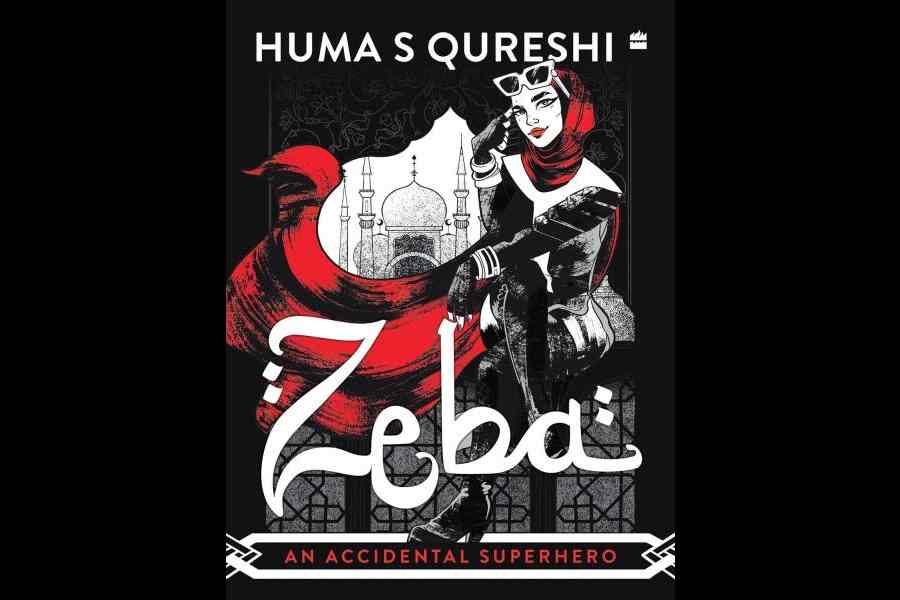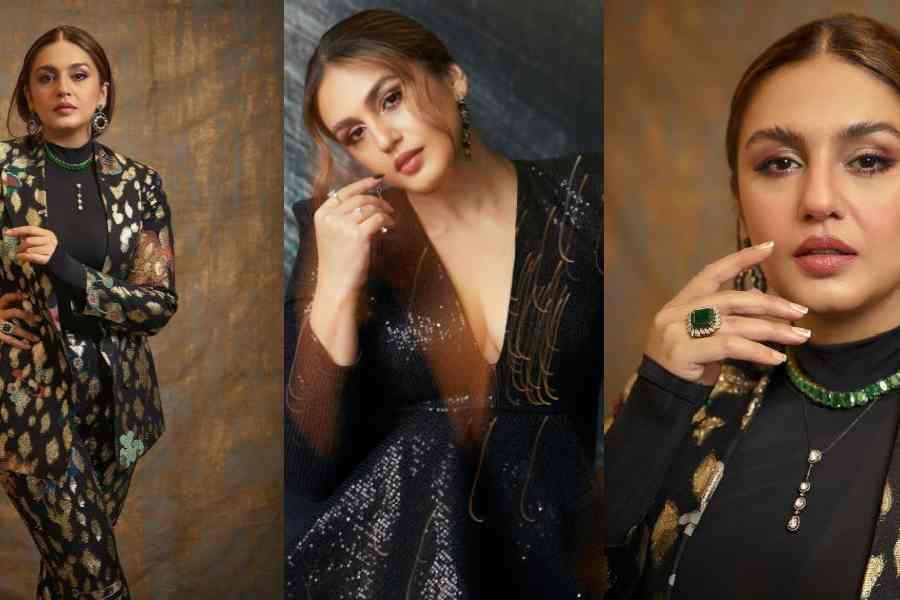Actor Huma S Qureshi turned author last month with her book Zeba: An Accidental Superhero. The fantasy fiction book will pique your interest first with its cover — the striking illustration of the titular character that gives out the Arabian Nights vibe, and then with the story that makes you stand by the sassy superhero and join her fight for life and to save the world.
Huma picks up contemporary themes and weaves a narrative that has the potential of becoming a franchise. An avid reader, Huma, who catapulted to fame with Gangs of Wasseypur, had originally planned a TV series for the story, but later chose the literary form and experienced the challenges and thrills of writing.
Opting for the genre of fantasy fiction was also a conscious choice for her as she wanted to take a deep dive into the creative world and her debut book is a tangible treat of a new and undiscovered side of Huma. Excerpts from an interview with t2oS.
Congratulations on your first book! What is it that made you pick up the pen and write?
Essentially boredom and Covid. I wanted to convert the story into a television series when Covid hit as I had time in hand. The other option was to write a script but I thought a book was more creatively satisfying. As an actor, one would logically assume that writing a script would come easy, but because I have been a reader since a young age, writing a book was easier for me. Honestly speaking, when the book was 70-80 per cent done and it was sent to publishers, the initial response was “Oh! Are you going to write a biography?” Fantasy fiction took a lot of people by surprise.
How was the experience of sketching the character of Zeba?
It was very delightful actually. Many things that we can’t do in real life, our characters can do in a fictional world, especially when it’s a fantasy fiction world, the sky is the limit. Also, it’s liberating and scary as well. You know often writers say that the book or script or character tells you what they are going to do, it’s very true and I could experience that. You just remain like a medium and the book or the character, they write themselves.
Zeba’s power is connected with water. Tell us about zeroing in on the element of water as her superpower.
Water is the most important and basic need of mankind. So, I thought that it would be interesting to have a superpower on the element that’s most vital to us. Also, the country, Khudir, a fictional place landlocked in the Himalayas, has one stream named Zsa Zsa. I thought it would be beautiful to root her power out of that spring with which she has a strong connection. I have explored many modern themes with the book. For instance, female infanticide is still a big issue. I think sometimes reality is so harsh that literature and fantasy fiction let us imagine a better reality. So, it’s like doffing your hat to the female spirit; you can’t silence or suppress it.
As a debutant, I am sure there must have been challenges. Tell us about them.

eba: An Accidental Superhero Author: Huma Qureshi Publisher: HarperCollins Price: Rs 499
There were many challenges. One was to be able to have the discipline to do it. Believe me, it sounds easier than it is. It is daunting to sit for two-three hours every day; that’s the time I could spare to create this world. Often, in between takes, I would write my thoughts on my phone’s notes as the plot was always on my mind.
I don’t think I got stuck anywhere story-wise as I didn’t write it under any kind of pressure for it to sound any which way. I didn’t try to be clever or I didn’t have a thought process of what it would stand for or mean; I just allowed it to flow organically. Each chapter is from the perspective of a character. So, as an actor, I can clearly think in terms of a character more than the plot or the script. So if the chapter was on Zeba or Kherun or Ayesha I would just allow those characters to come alive and think in terms of what would they enjoy doing, what would they hate doing, what their aspirations and dreams, what are the conflicts coming their way, how is that making them feel about it. So, I really allowed the characters to think about the problems and situations and let them come up with their own answers. So I didn’t really hit a block in that sense.
The illustrations and sketches give a kind of freshness to the book. Was that a conscious choice?
I wanted it to be a book that would speak to both the older and younger generations. Some chapters are specifically written with a younger voice while some are written with an older tone, by design. Thanks to HarperCollins, we got an illustrator and the 14 illustrations in the book help in understanding the world of Zeba better. Also, for me, it was important that it comes across as a disruptive book. It gives the vibe of classic tales like Panchatantra and Arabian Nights along with a modern outlook and modern concerns.
There’s also a Bollywood element in the story with Raes Khan. Was that intentional in any way?
Raes Khan is a minor character in the story but all the characters come and go only to take the story forward. The idea was not to have a Bolly connect for the sake of it; it has Beyonce as well, the idea was to incorporate popular culture and Bollywood is a big influence.
Is Zeba inspired by any fictional or non-fictional character?
Zeba is not really inspired by any one particular thing. I think she’s like any other girl growing up in this period and getting influenced. I chose 1980 to 2019 as the setting for the story as 1989 is an important decade in the kingdom and I wanted the post-9/11 and pre-Covid world as the modern-day setting.
How much do you identify with Zeba?
I think we both suffer from imposter syndrome. I think every artiste feels like an imposter. But it’s not just Zeba that I identify with but all the characters on some level or the other. Ayesha’s perspective, which talks about why parents and kids clash, helped me understand my mother better. It bridged the gap between me and my mum in some ways.
Your initial idea was to develop it for the screen. Is that idea still on?
I hope so, Inshallah. That’s a big dream to make it into a motion picture or series. Very often I think I want to play a character like Zeba on the screen but no one is offering me or writing it. So, I am like why wait, seize the day! In the corners of your mind you have the freedom to imagine such characters and play them in full glory.
Will there be a sequel to the book?
I do have the idea for Book 2 but let’s see.
Lastly, what are your literary influences?
When I was younger I would read Enid Blyton, Agatha Christie, and John Grisham, the list is long. Right now I read a lot of autobiographies. I have a pretty wide choice of stuff that I enjoy reading.
